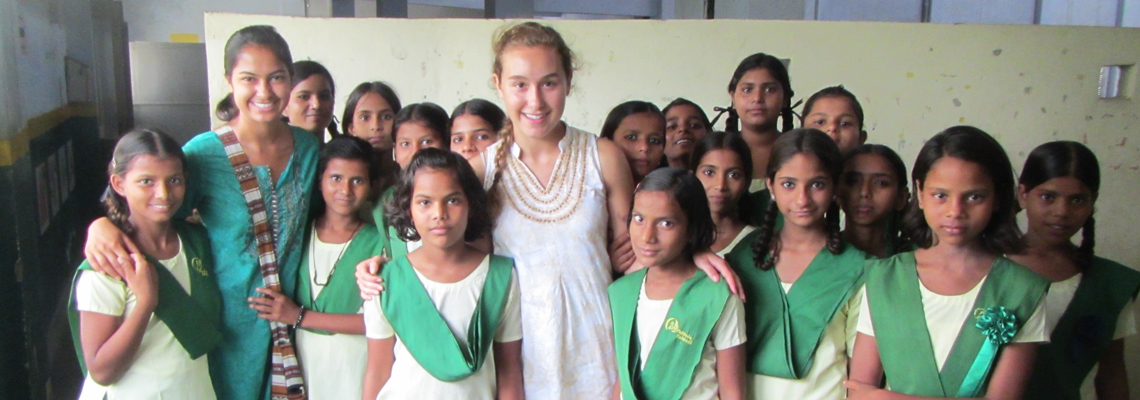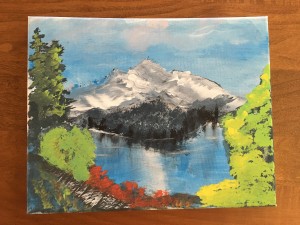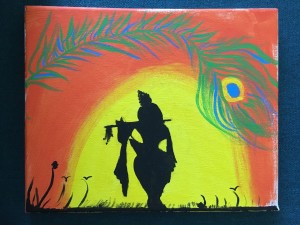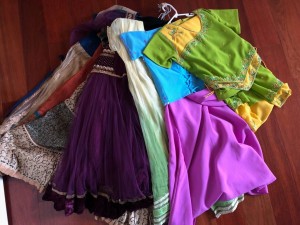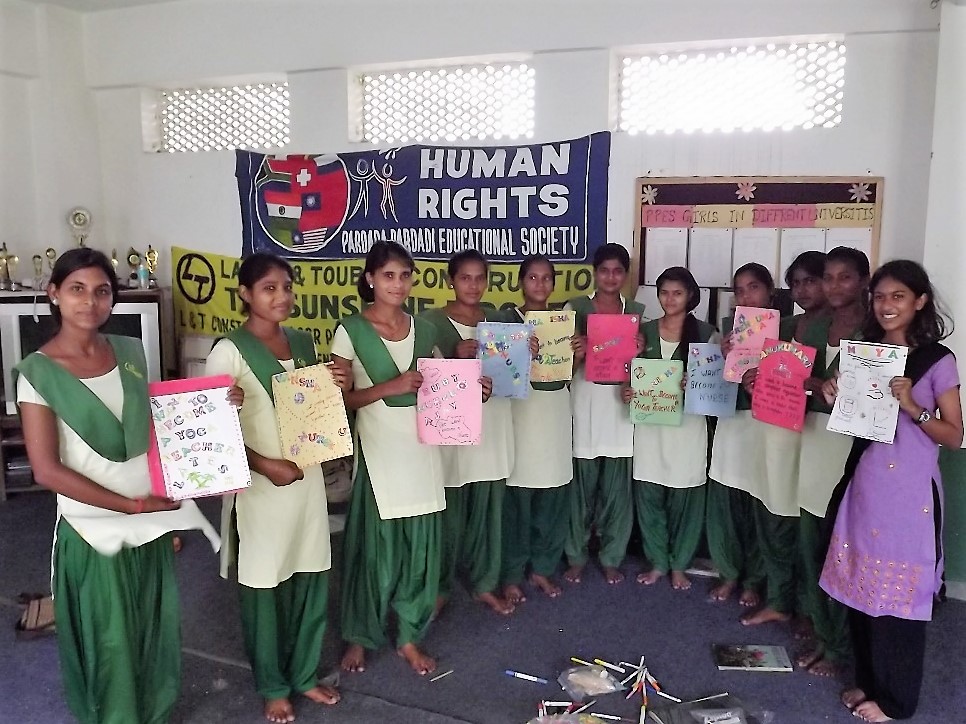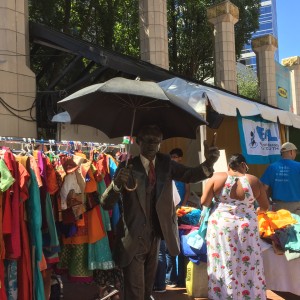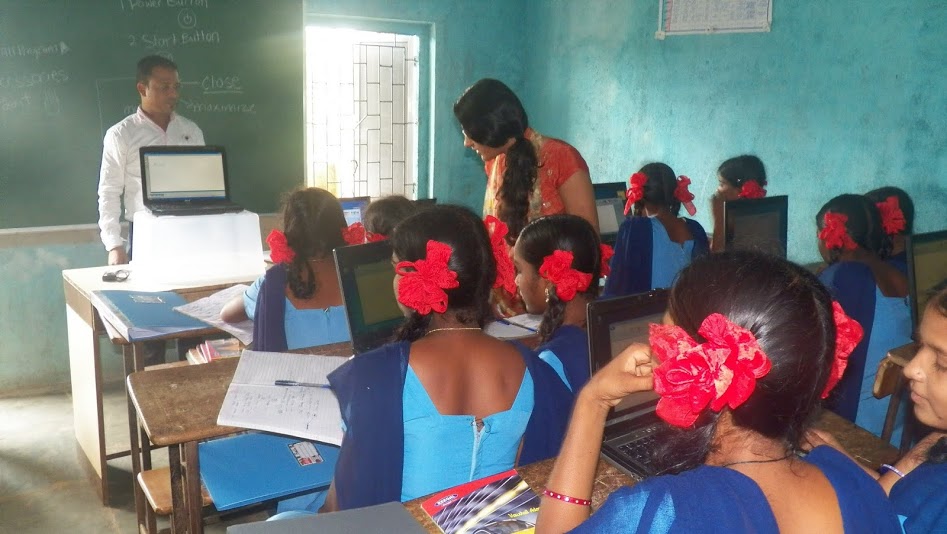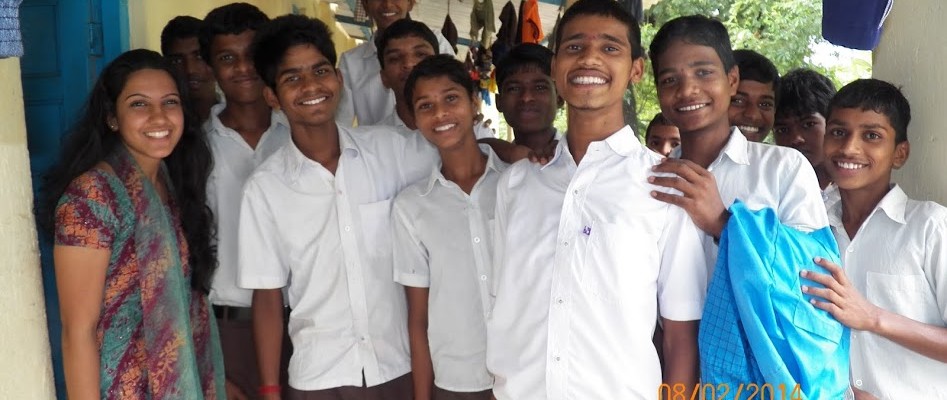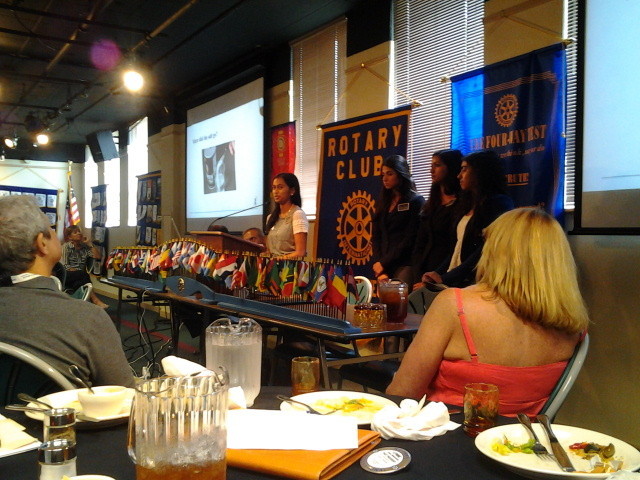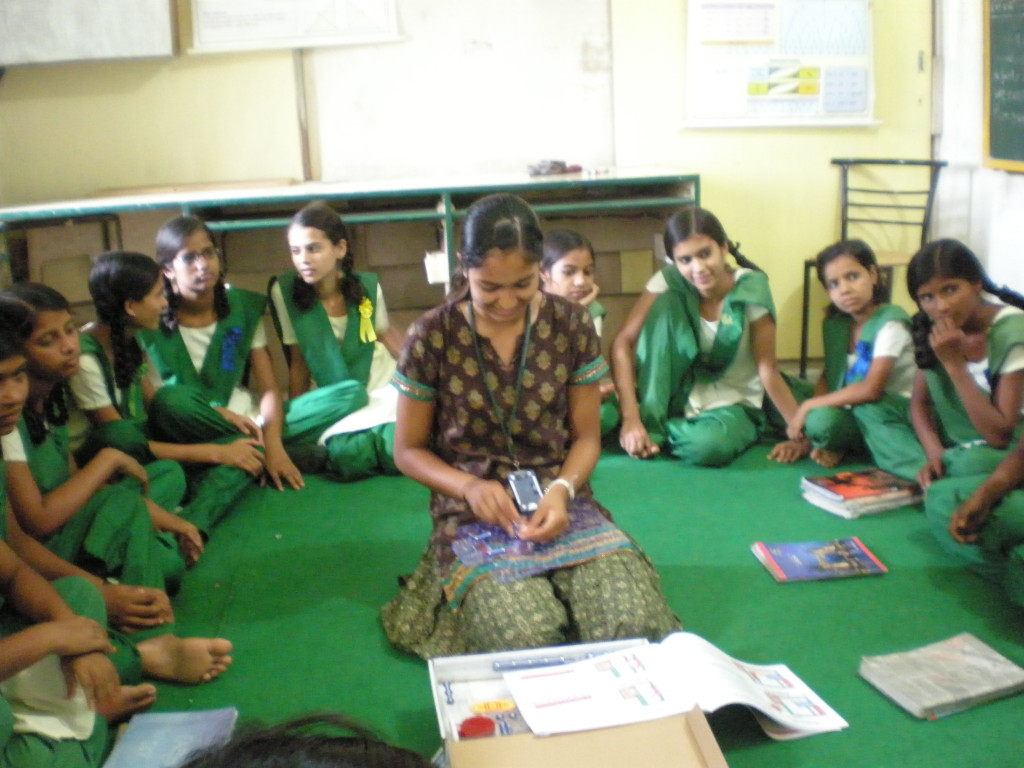 PPES is one of the rural schools that REAL supports and I have been the program coordinator for the school for the past four years. I had visited PPES once before with my family and spent a few hours there learning the operational details of the school. Since then, it has been my desire to stay onsite at the school and get to know the students not only in the class environment but their family environment as well. My close friend, Sophia, who is a big supporter of REAL, was eager to make the trip with me. As our junior year in high school came to an end, we started making plans and by July, everything had begun to come together. We were headed to India and PPES with a lot of excitement and some specific goals: develop a long term relationship with the school and the students, experience their day to day life/give them an insight into ours, establish hands-on STEM activities for the school, pilot the peer to peer global mentoring program I had previously established, and help train the girls for their upcoming half marathon.
PPES is one of the rural schools that REAL supports and I have been the program coordinator for the school for the past four years. I had visited PPES once before with my family and spent a few hours there learning the operational details of the school. Since then, it has been my desire to stay onsite at the school and get to know the students not only in the class environment but their family environment as well. My close friend, Sophia, who is a big supporter of REAL, was eager to make the trip with me. As our junior year in high school came to an end, we started making plans and by July, everything had begun to come together. We were headed to India and PPES with a lot of excitement and some specific goals: develop a long term relationship with the school and the students, experience their day to day life/give them an insight into ours, establish hands-on STEM activities for the school, pilot the peer to peer global mentoring program I had previously established, and help train the girls for their upcoming half marathon.
I had visited PPES in summer of 2011 and was looking forward to seeing how the school and the community around PPES had evolved in the past three years. One significant change at PPES since 2011 is the addition of a call center. The call center provides additional jobs for the vocational training program at PPES. Girls can choose to work at the call center after they graduate. At the call center, the girls book seats for the popular and extravagant Kingdom of Dreams show in Gourgon. And being the only place with air-conditioning on campus, the call center became our safe haven throughout our week-long stay at PPES. We went there when we could not handle the heat.
Every morning at PPES, we would talk to the Principal, KK Sir, about the upcoming day’s plans. He often listed a few classes which had a free period. We would go to these classes as the teacher was leaving for a break and introduce ourselves. We played various games with the younger girls such the name game, Simon’s says and telephone; these games helped the girls get comfortable hearing us speak in English and tested their comprehension skills. We also brought two electric circuit kits to the school which could create over 200 circuit combinations and included speakers, a fan, and a light switch. It was fun to explain the concept of electricity to the upper grade students, demonstrate how to construct a circuit and then let them explore and discover the many ways to make different circuits on their own.
Sometime we would have a chance to go outside and play games with the students. We adored running around with the girls and teaching and learning games from them. They taught us one of their favorite games, Kho, and in turn loved the Frisbee and jump ropes we had taken for them from the US. Several of the girls at the school were training for a half marathon and would jog laps in the field in the morning. We are both long distance runners for our high school and provided some drills and stretching exercises for the girls and their instructor to use. It was excruciatingly hot, and even though we are cross country runners, we got tired jogging with them.
Our typical day consisted of waking up, taking a much needed shower and walking out of our room to a delicious breakfast sitting on the table. We ate breakfast and dinner at the guest house with Elsa Ji, the school nurse, any other volunteers that were there at the time, and Sonum, a girl who attended the school but lived at the guest house. We would go watch the morning assembly or help with the half marathon training at 8am and then talk to KK Sir about the rest of the day. We also observed classes, such as the computer class or the math class and studied their curriculum to provide suggestions for improvement. We walked around to different classes, getting to know the girls and the school. One of the days, I performed a Bharatnatyam classical dance for a few of the classes and the girls were highly interested and appreciative of the dance form. I taught some of the girls a few steps and they were excited to learn more. After school ended, we would journal about the day (usually in the comfort of the cool call center) and in the evening we relaxed and one day went to visit the nearby city of Anoopshahar.
In addition to working at the school, we had the chance to visit a hygiene clinic, a government hospital, and a few surrounding villages. It was an eye opening experience to see the way of life in the village first hand and their everyday activities.
We want to maintain long term connection with the girls at the school. During the past school year, I had started a tutoring program between a few older girls at PPES and peer students at my high school in the US with an objective to assist the girls in Math and English and cultivate a cultural exchange. We had some road blocks due to lack of internet connectivity at PPES for a few months, and long distance communication challenges. While on-site at PPES, we worked closely with the math and science teacher, Ashok Sir, to get the tutoring infrastructure set up. I was also successful in procuring 12 laptops for the school.
We came back from PPES with many memories and life experiences that will stay with us forever. It was very encouraging to see that REAL’s support to the school is making a difference. Sophia and I look forward to a lifetime of friendship with all the wonderful people we met and an ongoing relationship with the school and the community.
